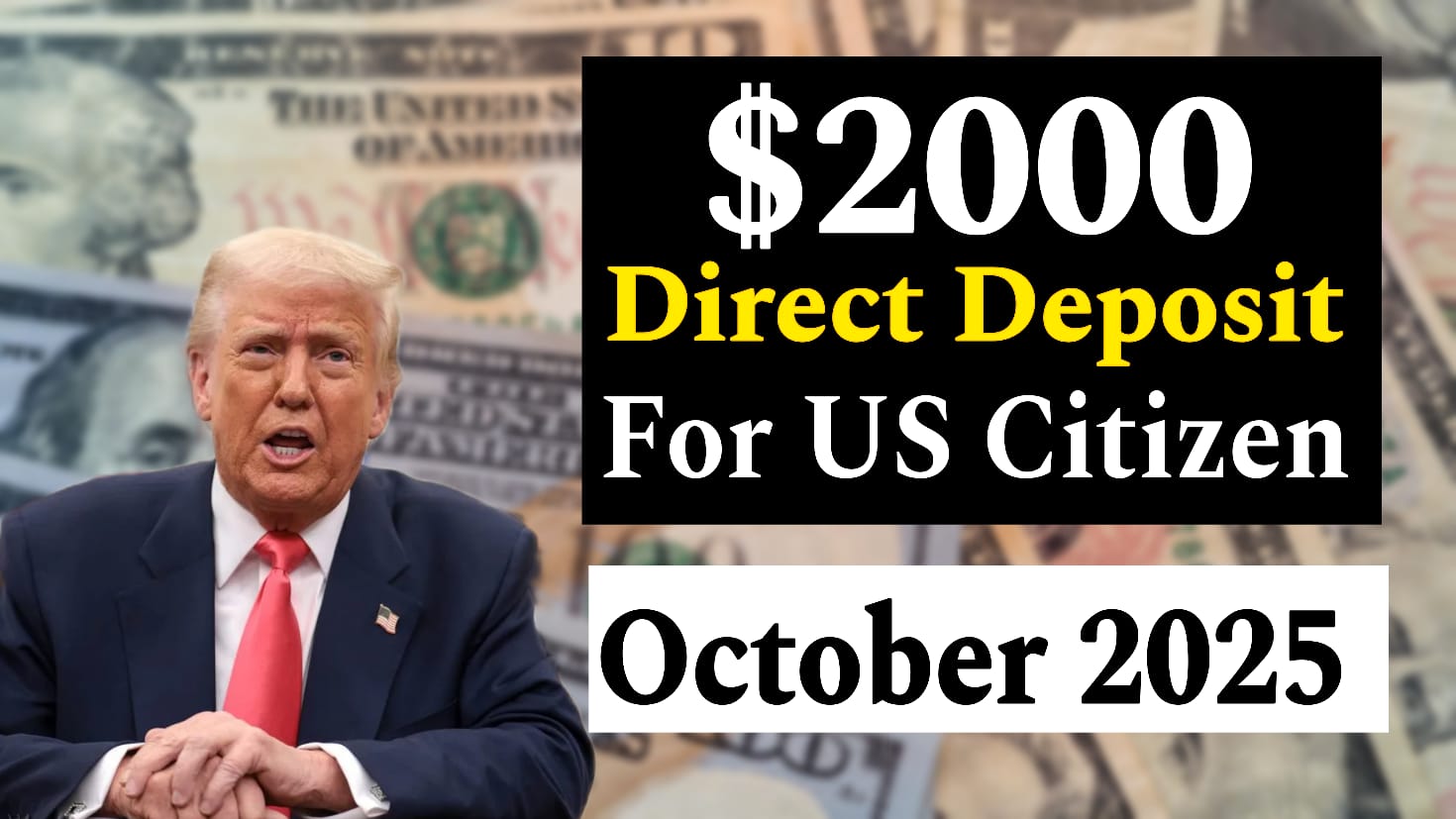Lately, social media and several websites have been buzzing with claims about a $2,000 direct deposit supposedly being sent to every U.S. citizen this month. However, these claims are false. After verifying the details, it’s clear that there has been no official announcement from the IRS, Congress, or any other federal agency about such a payment.
Where the $2,000 Direct Deposit Rumor Started
This misleading rumor most likely stems from confusion surrounding a real payment program in Alaska, known as the Alaska Permanent Fund Dividend (PFD). The PFD is not a federal program—it’s a state-level initiative funded by Alaska’s oil revenues. Every year, eligible Alaska residents receive a payment, which varies based on the state’s oil income.
In 2025, qualified Alaskans are expected to receive around $1,702 under the Alaska PFD. Because this program involves direct deposits and resembles previous federal stimulus payments, it often gets misrepresented online as a national program.
Eligibility Rules for Alaska’s Permanent Fund Dividend
To clarify, the Alaska PFD applies only to Alaska residents. Below are the main eligibility requirements:
- Residency: The applicant must be a resident of Alaska for the qualifying year.
- Physical Presence: The person must have been physically present in Alaska for at least 72 hours during each of the last two years.
- Intent to Remain: The applicant must show intent to remain in Alaska indefinitely.
-
No Criminal Convictions: During the qualifying year, there must be no disqualifying criminal convictions.
Despite these clear criteria, several online sources have falsely claimed that all U.S. citizens are eligible for this payment. That’s not true—the Alaska PFD is exclusively for Alaska residents.
Why Understanding the $2,000 Direct Deposit Rumor Matters
It’s important to understand the difference between federal and state programs to avoid confusion and potential scams. False claims like the “$2,000 deposit for everyone” can trick people into sharing personal or financial information with fraudulent websites pretending to offer government benefits.
To protect yourself:
- Always verify information from official sources such as www.irs.gov or the Federal Register.
- Avoid clicking on suspicious links or submitting personal details to unverified platforms.
-
Be cautious about social media posts or viral videos claiming “free government money.”
By staying informed, you can prevent identity theft, financial fraud, and data misuse.
Alaska PFD Payment Schedule (2025)
The Alaska Permanent Fund Dividend follows an annual payment schedule that typically occurs in October each year. For 2025, payments are expected to be distributed on:
- October 2, 2025
-
October 23, 2025
These dates apply only to eligible Alaska residents. Any social media post claiming that a nationwide $2,000 federal payment will be deposited on these or similar dates is completely false.
Alaska PFD vs. $2,000 Federal Deposit Rumor
Here’s a quick comparison between the verified Alaska PFD and the fake $2,000 federal payment rumor:
| Feature | Alaska Permanent Fund Dividend (PFD) | $2,000 Federal Direct Deposit (Rumor) |
|---|---|---|
| Program Type | State-funded (Alaska only) | No such federal program |
| Payment Amount (2025) | About $1,702 | $2,000 (unverified claim) |
| Eligibility | Alaska residents meeting specific criteria | None – rumor only |
| Funding Source | Alaska’s oil revenue earnings | None |
| Official Confirmation | Announced by Alaska Permanent Fund Corporation | No confirmation from IRS or Congress |
| Payment Date | October 2025 (state schedule) | None – rumor-based |
Final Word: Don’t Fall for the $2,000 Direct Deposit Hoax
While it’s understandable that people may hope for financial assistance, it’s crucial to rely on verified sources. As of now, there is no $2,000 federal direct deposit program for U.S. citizens. The only legitimate payment resembling it is the Alaska PFD, which applies only to Alaskan residents.
Always double-check any claims about federal payments before sharing them or submitting personal details online. Staying informed is the best protection against scams and misinformation.



